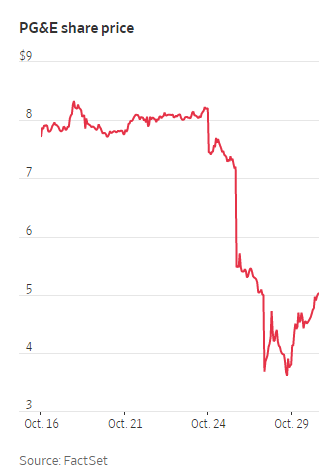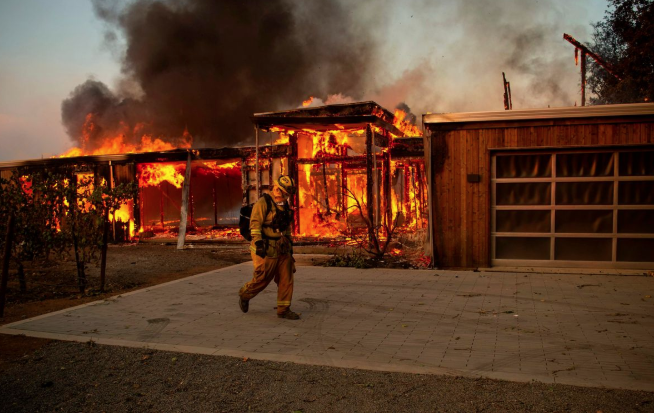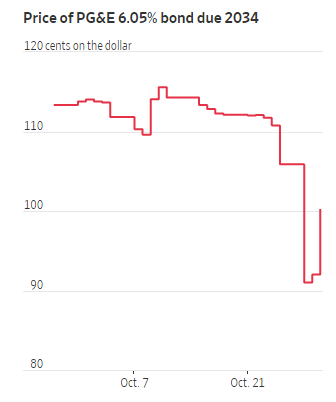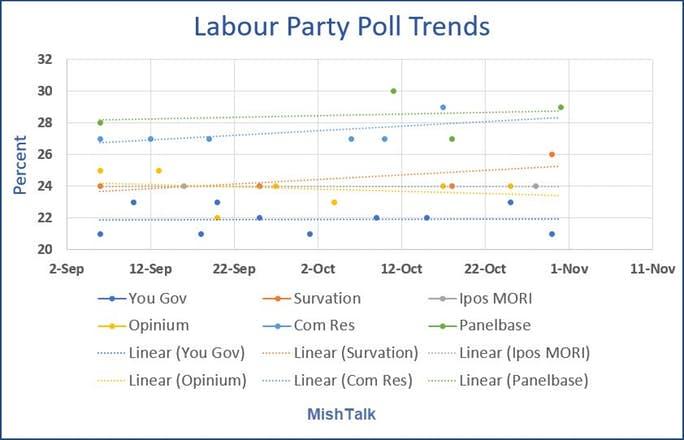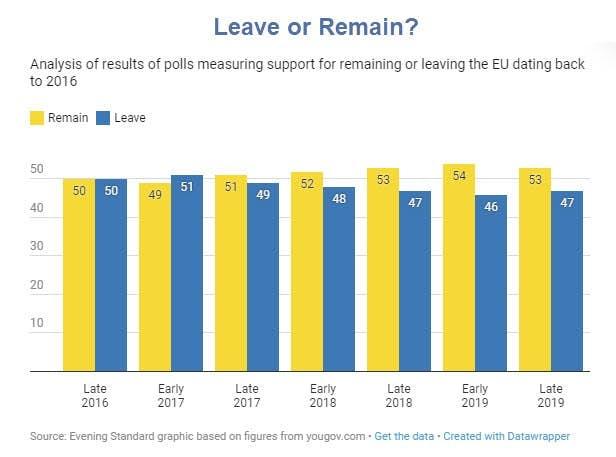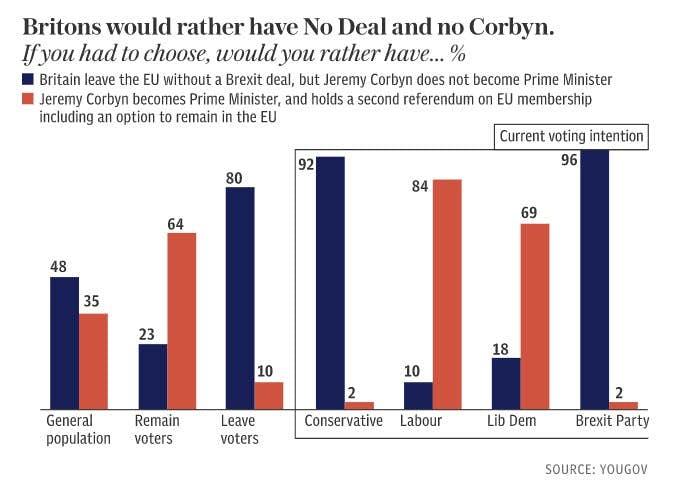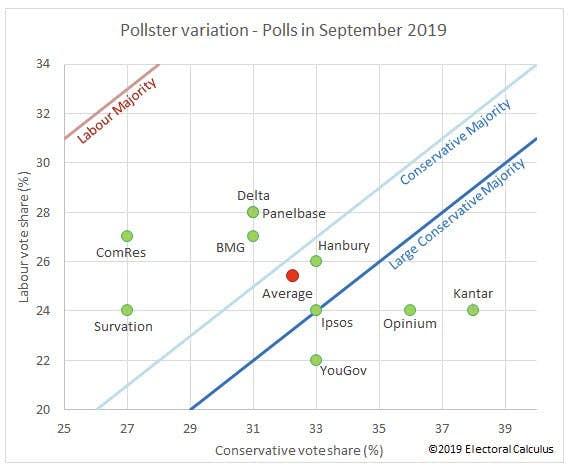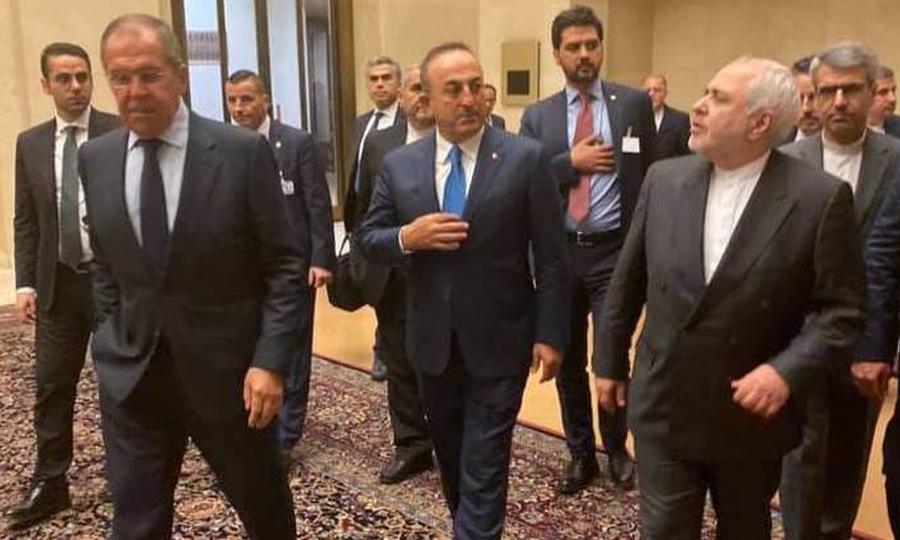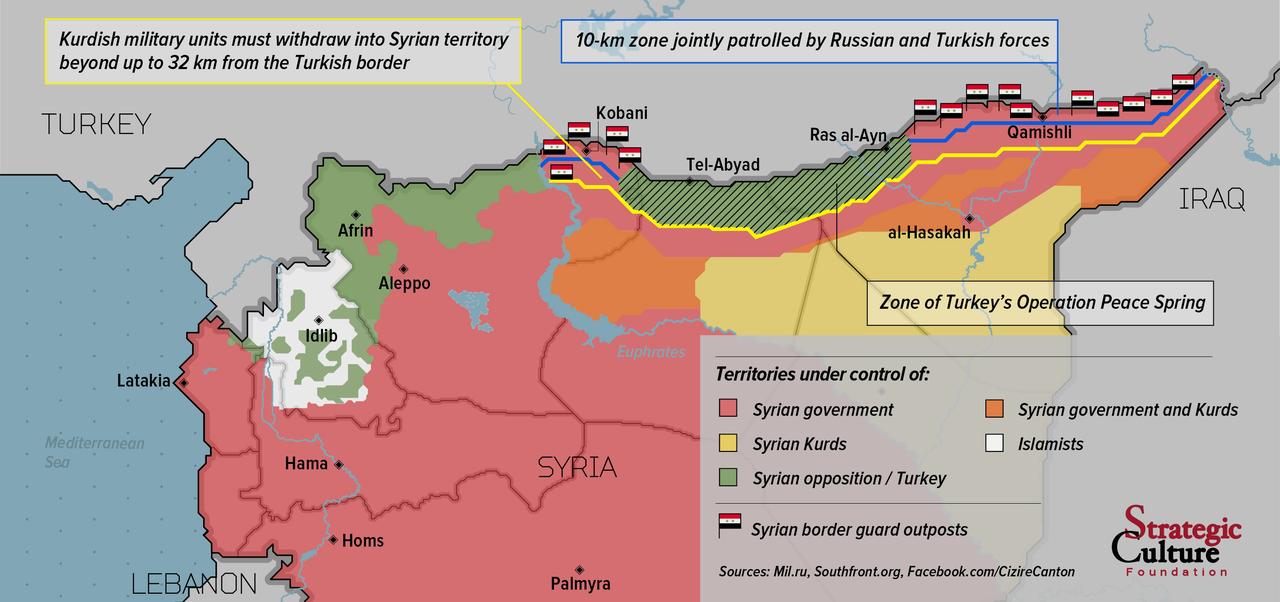Hedge Funds Invested In PG&E Lose $4.1 Billion In Just Four Trading Days
California isn’t the only thing that’s burning: hedge funds invested in PG&E are slowly watching their cash go up in smoke.
Investors in the company lost roughly $4.1 billion in the four days after the current blaze in Sonoma County broke out on October 23, according to the Wall Street Journal. Shares rebounded late last week, but are still about 85% lower than their 52 week highs, poking around the mid single digits while hedge funds and equity investors try to analyze numerous bankruptcy outcomes that the company might face.
The company’s market cap has been cut to about $3.4 billion from highs of $37 billion in 2017. Bond prices have fallen as much as 12.5%, which is the biggest decline since it was determined that PG&E equipment set off the campfire in Northern California last November.
The volatility has made it difficult for hedge funds to profit from what is being called the “first major bankruptcy induced by climate change”.
Stephen Byrd, head of utilities research at Morgan Stanley said: “Climate change has had a big impact on investing in California utilities, and the risk of fires is here to stay.”
Among the funds that have invested in PG&E equity or bonds are Abrams Capital Management LP, Baupost Group LLC, Elliott Management Corp. and Värde Partners.
The sell off last week was helped along by the Kincade Fire’s quick spread through the state. An increasing number of wildfire claims against PG&E could easily wipe out the company’s equity and take the company’s junior bondholders with it.
Andrew DeVries, a bond analyst at the research firm CreditSights said: “The number one question for investors is are they on the hook for the Kincade Fire and, if so, how much will that cost. The answer is nobody knows.”
And the uncertainty is putting pressure on negotiations between PG&E’s investors, insurers and existing wildfire victims – pressure that could prevent the company’s plans for exiting bankruptcy.
Bondholders have already pledged billions to the company to pay out wildfire claims, but made the deal contingent upon a provision that the damage from the current fires doesn’t exceed 500 buildings. The Kincade Fire has already damaged 246 structures, as of mid-last week.
An increase in claims could jeopardize the profitable plan of buying up insurers’ claims against PG&E at a discount, a plan that Baupost and other investors are betting on.
PG&E has said that one of its power lines malfunctioned shortly before the Kincade Fire, but the exact cause and any liability associated with it are still unknown. The Kincade Fire started despite PG&E plunging the state into darkness with precautionary “safety” blackouts, which we have reported on extensively here on Zero Hedge.
Since the Kincade Fire started, about $4.4 billion worth of the company’s bonds have traded hands. 296 million common shares have also changed hands. Holders of the bonds are on the hook for paper losses of about $1.4 billion as of the end of last week. Equity holders have taken aggregate losses of about $1.1 billion in the same time period.
Bonds with the highest annual interest payments are experiencing the most pressure. Hedge funds like Elliot had bought into these bonds in hopes that they could recover as much as 130 cents on the dollar after accounting for past-due interest. These bonds fell as much as 18% to prices as low as 90 cents on the dollar after the Kincade Fire started.
Davidson Kempner Capital Management, a fund that held $767 million of bonds, sold out of the position on Monday. Other fund managers hedged against their bond positions by shorting the company’s equity, one trader said.
Steadfast Capital Management LP said on Wednesday that it lost 1.47% from its investment in PG&E stock in the third quarter, calling it a “terrible decision”.
“This is a powerful example of high-degree-of-difficulty investing and one that, in hindsight, we should have avoided,” the fund said in its letter.
Tyler Durden
Mon, 11/04/2019 – 05:30
via ZeroHedge News https://ift.tt/2PHs2lg Tyler Durden

